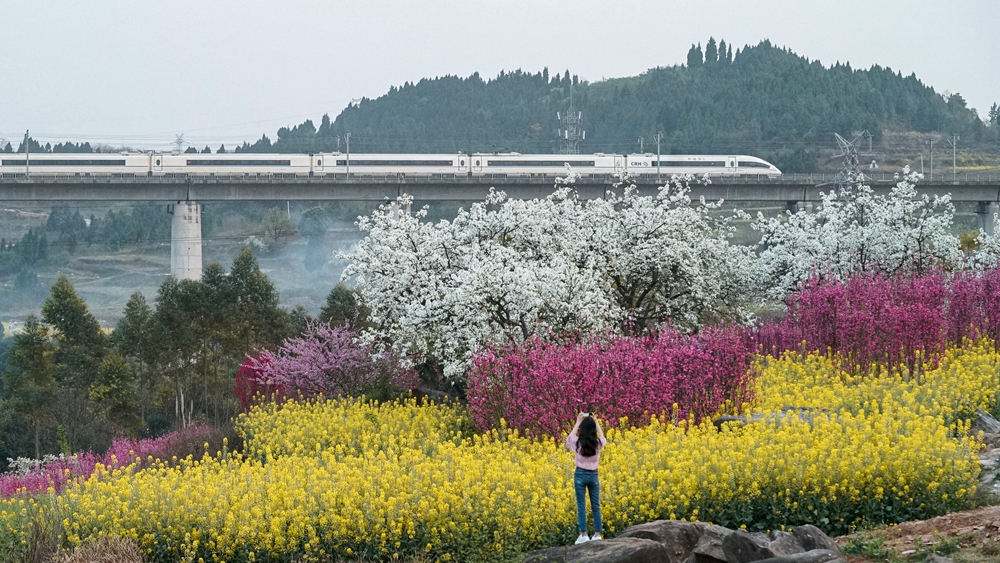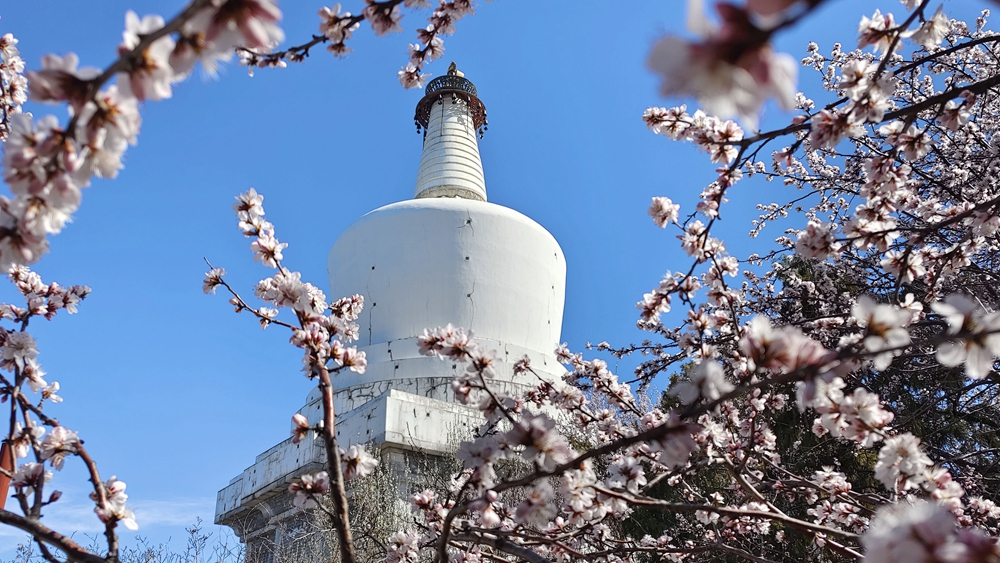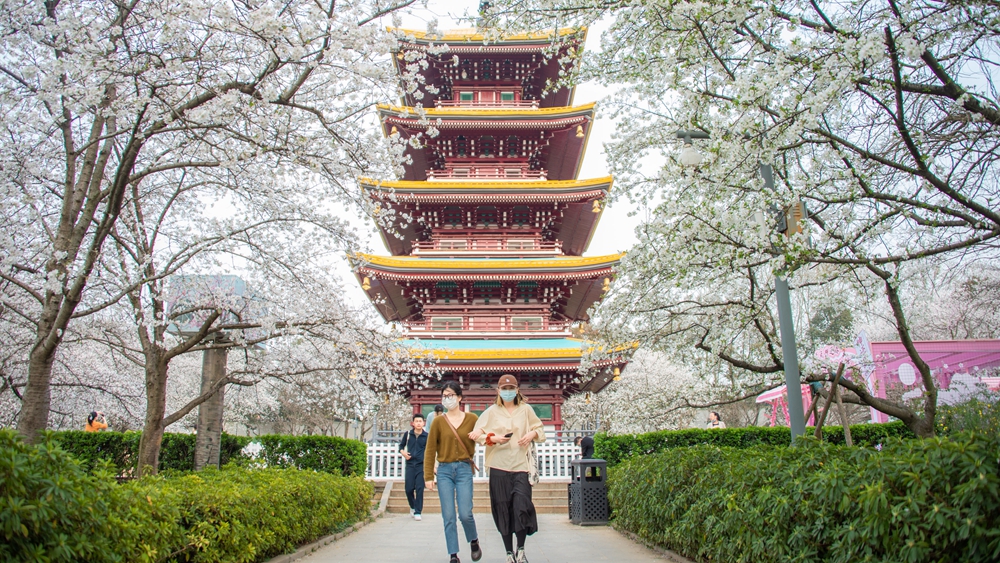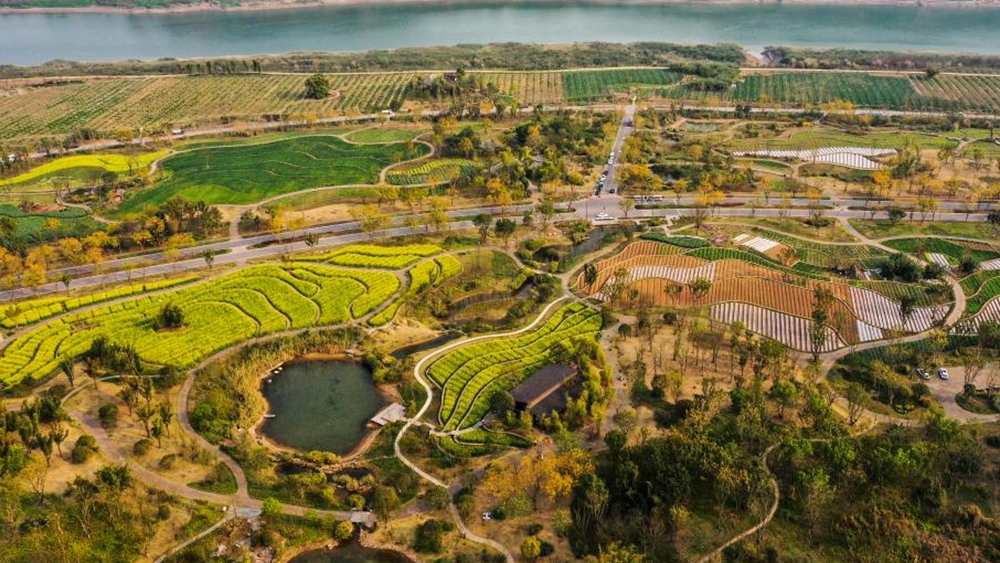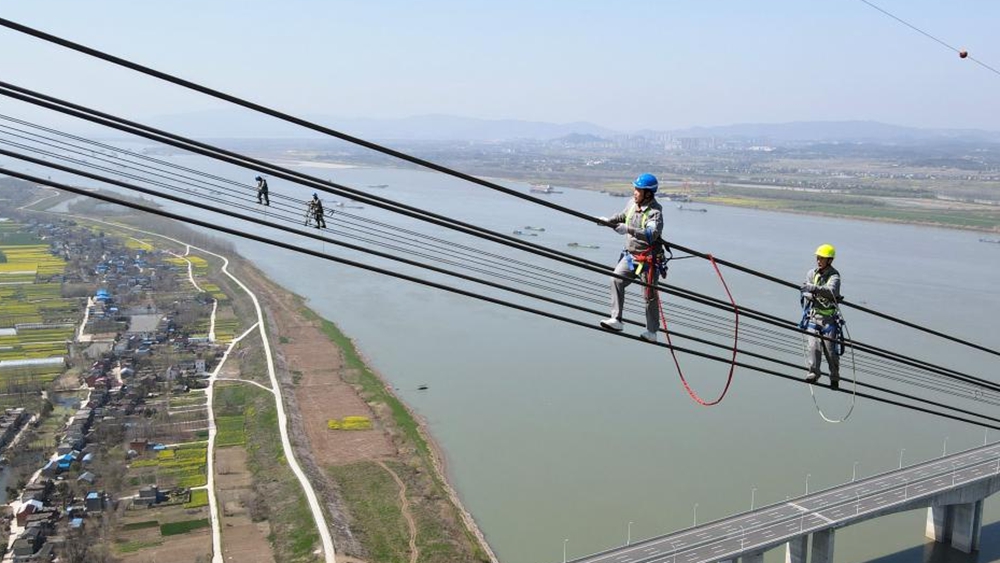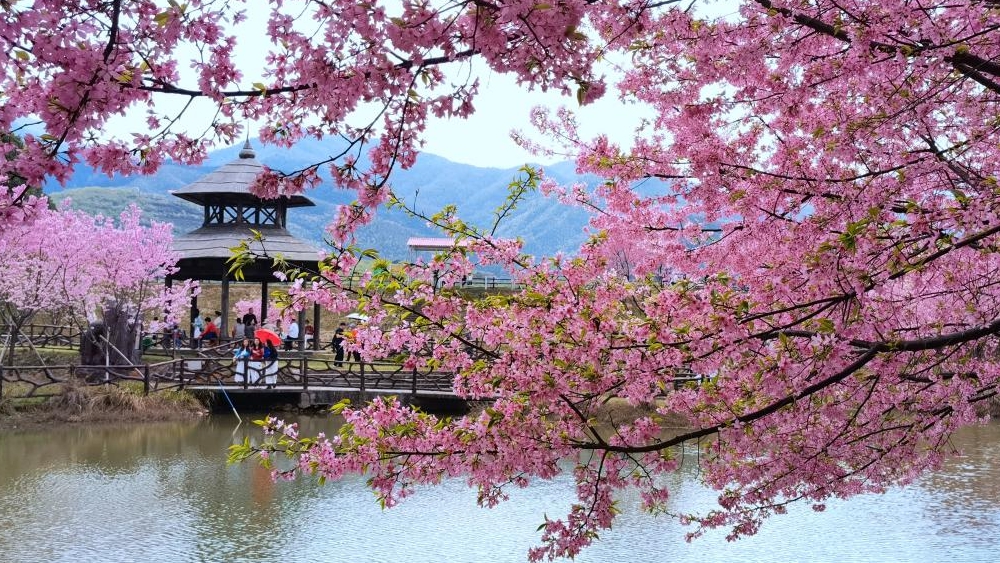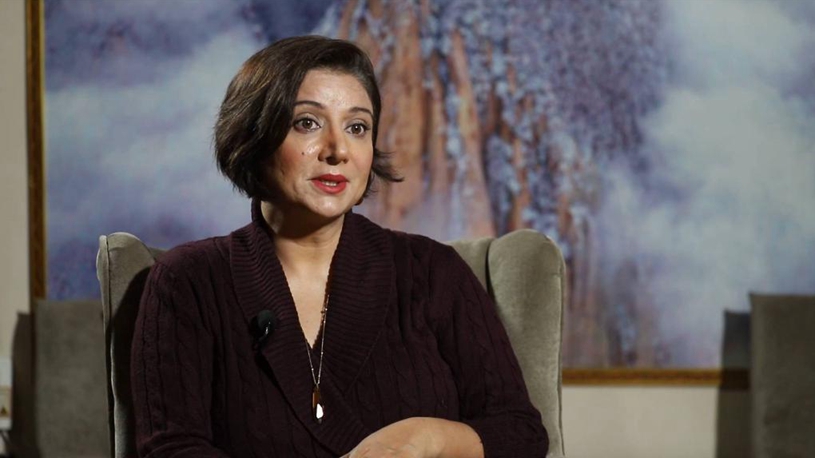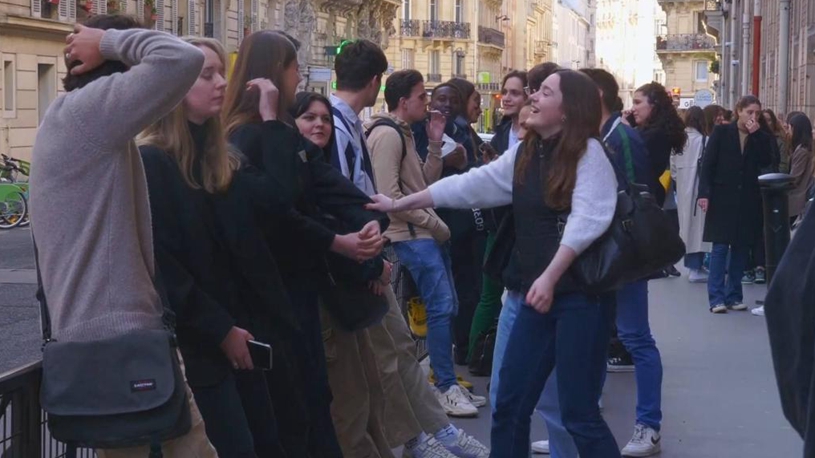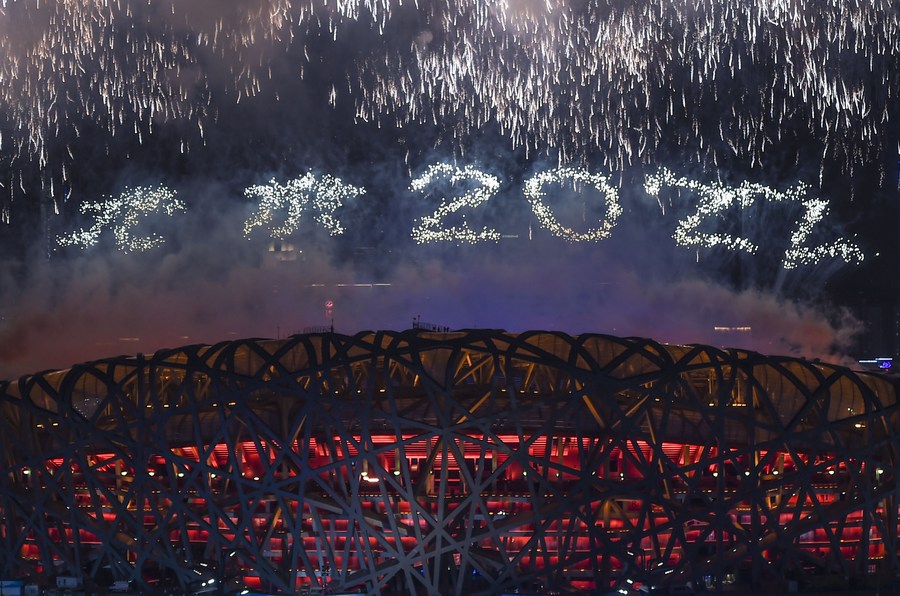
Fireworks illuminate the night sky during the closing ceremony of the Beijing 2022 Paralympic Winter Games at the National Stadium on March 13, 2022. (Xinhua/Xia Yifang)
Beijing 2022 delivered a "green, inclusive, open and clean" Games and its legacy is relevant to various aspects of social development and will influence a wider range of people in the long run.
BEIJING, March 17 (Xinhua) -- The Beijing 2022 Winter Olympic and Paralympic Games impressed the world with China's solid pre-Games preparation and its athletes' performances, while the Games' legacy will further underpin Beijing 2022's motto of "Together for a Shared Future."
Under the Olympic Agenda 2020, the Beijing 2022 organizers delivered a legacy plan from the initial planning stages and committed to a "green, inclusive, open and clean" Games. Now, the Games' legacy has become relevant to various aspects of social development and will influence a wider range of people in the long run.
"Sustainable development is China's national strategy and also one of the pillars of the Olympic Agenda 2020. Six venues originally constructed for the Beijing 2008 Summer Olympics were reused at Beijing 2022, and there are plans for all newly-developed venues for post-Games use," said Li Sen, director-general of the general planning department of the Beijing 2022 organizing committee (BOCOG).
During the Beijing 2022 Paralympic Games, China's annual "Two Sessions" were held in Beijing, representing the annual gatherings of the country's National People's Congress (NPC) and the National Committee of the Chinese People's Political Consultative Conference (CPPCC), China's top political consultative body.
The NPC deputies and CPPCC members cheered for athletes at Beijing 2022 and also focused on the long-term development of China's winter sports.
Shen Jin, a CPPCC member and deputy director of BOCOG's venue planning and construction department, said: "After the Games, the venues will not only be used to organize high-level winter sports events and training, but will also host exhibitions and conferences."
According to BOCOG, all venues for the Winter Olympics and Paralympics will be open to the public after the Games. For example, the National Alpine Ski Center will be open all year round. In addition to serving as a ski resort in winter, it will also be used in summer months for other outdoor activities including rock climbing and hiking.
"The venues are the fundamental basis of an Olympic and Paralympic Games, but more importantly, we need staff and technical officials in operation," said Wang Yanxia, a CPPCC and deputy director of BOCOG's sports department.
"When we bid for the Beijing Winter Olympics, there was still a shortage of professionals in winter sports, including technical officials, ice-makers and ski doctors," Wang said. "However, during the past seven years, we have cultivated a sufficient group of people who are capable of running the Games. They are a valuable reserve of talents for the development of winter sports in the future."
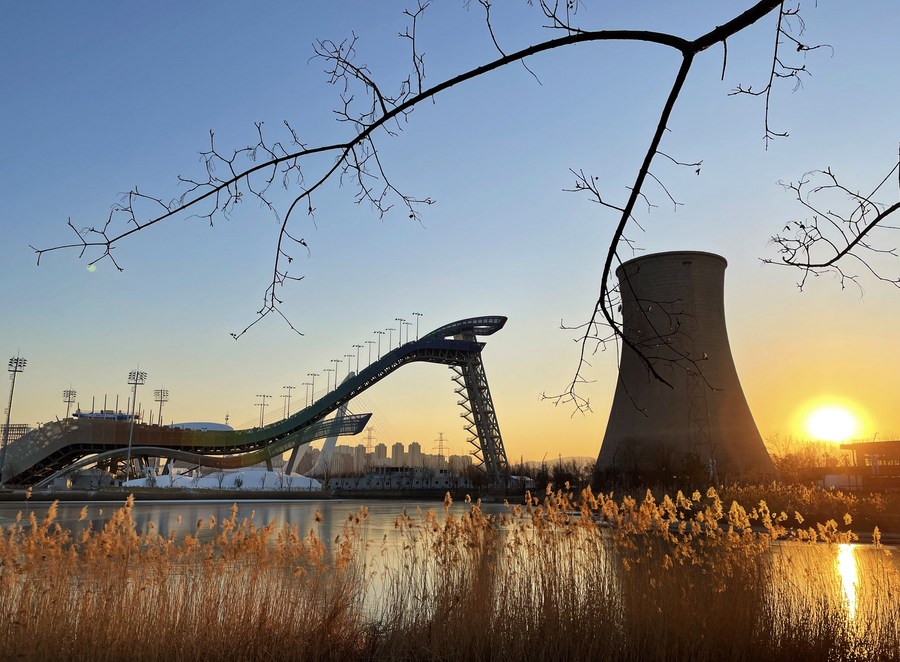
This photo taken on Dec. 28, 2021 shows Big Air Shougang, a venue for the Beijing 2022 Winter Olympic Games. (Xinhua/Tao Xiyi)
Creating long-term benefits for host cities and regions is a significant marker of successfully holding the Games. As the first Games to abide by the Olympic Agenda 2020 from its early planning stages, Beijing 2022 was taken as a precious opportunity to popularize winter sports nationwide.
As of now, China has fulfilled its goal of engaging 300 million people in winter sports ahead of schedule. "This extraordinary achievement is the start of a new era for global winter sport. It will raise global participation to new levels, benefiting Chinese people as well as winter sport enthusiasts around the world," said Thomas Bach, president of the International Olympic Committee.
"We delivered an exceptional Games and inspired youths to participate in winter sports. Follow-up measures should be taken at the next stage to consolidate this achievement and further expand winter sports education," said Yang Yang, a CPPCC member and chair of the Athletes' Commission for Beijing 2022.
"The volunteers' warm smiles at Beijing 2022 once again made people from all over the world feel the hospitality of Chinese people. This volunteer spirit should be carried forward as an Olympic legacy to benefit more fields in our society," added Yang, who also won China's first ever Winter Olympic gold medal at Salt Lake City 2002.
Bian Zhiliang, a CPPCC member and the CEO of Taishan Sports Industry Group in east China's Shandong Province, has seen the development of China's sports industry over the past decades, saying: "Beijing 2008 was a landmark, leading China's sports industry onto a fast track. This will be further accelerated by the Beijing Winter Olympics in the future with its abundant legacies." (by Li Chunyu, Ji Ye) ■

